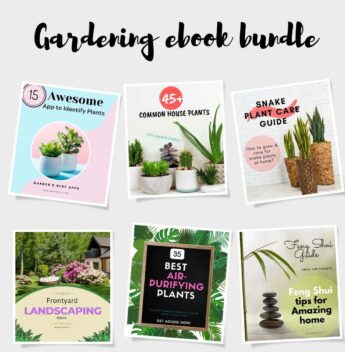Any real estate agent will tell you how difficult it can be to capture the heart and soul of a property in a house listing, to communicate its natural strengths while also selling the romantic nature of its history.
It’s also true that for obvious reasons, properties against are focused on the hard facts of figures of the real estate being sold - how much square footage it offers if there are solar panels installed when it was last renovated, and more.
Unfortunately, not all property agents are gardeners in their spare time. That’s understandable; not everyone has the chance to run a vegetable garden, or they may not have had the benefit of landscaping a property before.
As such, those with hands-on experience can easily spot flaws in a property listing related to the garden space on offer. As this is our expertise, we think it could be ideal for them to learn this set of schools by pointing out, with affability, the most common mistakes property agents make when marketing gardens as a fundamental element of any listing.
With that in mind, please consider:
1. Neglecting The Importance Of Landscaping
A garden is not a binary feature but a vital component that requires good maintenance. For example, if the garden has undergone renewed sod installation, make sure to mention that fact! If the landscaping has integrated foundation repair, rain gardens, and new water runoff features, make sure that this is carefully expressed. Find out the essential components of the garden and how it’s been altered over time to give new homeowners the best chance of understanding and appreciating this vibrant space. You can also add essential details such as the kind of soil available, as you can be sure gardeners will look at this fondly.

Looking for easy-to-maintain, low-budget front-yard landscaping ideas?
2. Generic Listing Descriptions
It’s important to be precise about the garden and what it offers. Sure, gardens can be altered perhaps more easily than a kitchen could be - laying new turf and moving your vegetable garden to a new spot is easy to do, but it’s also healthy to highlight the unique features involved, from water features to rain gardens as discussed above. Paint a vivid picture of the wildlife most seen there, the sightlines, the privacy, and how the light hits the garden. This isn’t necessarily a creative writing competition, but making certain garden lovers know the wonder that lies within through precise speech is healthy.
3. Highlight Seasonal Strengths
Houses can go on the market anytime, but it’s healthy to take new pictures as the seasons pass if the property is still on the market. Updating a garden picture from the winter to the spring can make a huge difference in how bountiful the space feels, for obvious reasons. It’s also good to mention features that might only be available at certain times of the year, showcasing the year-round potential of the space. That might include the space defined for barbecues, fall foliage, and perfect seating areas with attachment points for exterior heaters. The more you can inspire buyers as to how they might use the garden, the more they’ll picture themselves in it.
4. Perfect Professional Photography
Of course, none of this matters if the photography is poorly choreographed. Real estate developers often use slight fish-eye lenses to create a sense of space and get most of the room in the shot. For gardens, this doesn’t work as well. But it’s also important to get a good sense of scale. Taking pictures with wide-angle lenses can cover much but also give a good referential point. You may make certain that certain features, like garden furniture, are visible so that the viewer can naturally judge the dimensions.
Moreover, waiting for appropriate lighting conditions before taking a photograph is good. You can even ask the property owner to send you additional photographs if you’re not present on a sunny day so that you can texture the portfolio a little. Remember that vibrant colors, sun-dappled paths, and lighting fixtures that highlight garden areas in the early morning or evening can be ideal. This way, you’re selling not only the clinical dimensions of the garden but also the romance of having a plot of land curated solely for you.
5. Ignoring A Garden’s Unique Features
Every garden has at least one thing unique to it, at least in the general area. It might be that a certain kind of tree is more populous in the area you’re selling in, and luckily, there may be a handsome treeline leading up to the property.
It could be that some unique flora or fauna are available in a given space - for example, red squirrels are less common in the UK than grey squirrels, and if they make a home in the for-sale garden, then that’s a wonderful selling point to take. This isn’t to say you have to have a deep understanding of the wildlife history of each area to be a capable property agent, far from it, but if you don’t mention strengths like this, that’s a strength gone unmarketed.
Are the Mistakes Property Agents Make in Marketing Gardens Similar to Landscaping Mistakes That Could Hurt Home Values?
Property agents often overlook the importance of garden marketing. Just like homeowners should avoid landscaping mistakes harmful value, agents should also ensure their marketing strategies highlight the value and potential of a well-maintained garden to attract potential buyers and increase property value.
6. Garden Maintenance
It might not seem as impressive to talk about new privacy fences as it may be to talk about a brand-new and renovated kitchen, but it counts and really affects the local area. Therefore, expressing the chances made by garden maintenance and how it’s cultivated the shape and character of the garden space can be nothing if not healthy.
You can also discuss plans in motion for the garden so prospective new gardeners know what to look for, like installing new rain gardens with appropriate plants to absorb runoff capably. It’s also worth considering additional investments made outside of the real estate that could influence the property - for example, the felling of trees on a neighbor’s property that now allows for more sunlight on their vegetable patch.
While it’s true that not every property prospectus can be packed with details like these, you can certainly point to them throughout the house tour to make a real and essential impact going forward. So - don’t be afraid to push for that.
With this advice, you can avoid property agents' common mistakes when marketing gardens.
















